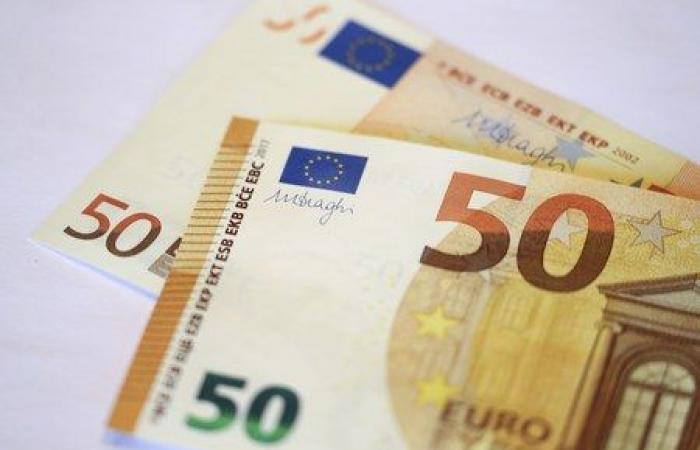U.S. Treasury bond yields rose on Friday as anxiety mounts ahead of U.S. inflation data that could decide an interest rate cut in September, while awaiting fallout from the U.S. presidential debate.
Two-year yields rose 2 basis points to 4.732%, barely changed over the week but down 16 basis points over the month.
Yields on 10-year bonds also rose 2 basis points to 4.313%, up 5 basis points over the week, but down 20 basis points over the month of June so far.
Bonds were helped by a string of data indicating a slowdown in the U.S. economy, leading the Atlanta Fed’s closely watched GDPNow gauge to rise to 2.7% from 3.0%.
Much now depends on the May Personal Consumption Expenditures (PCE) Price Index, one of the Federal Reserve’s favorite measures of inflation, which must slow as expected to keep rate cuts on track .
The core index is forecast to have risen just 0.1% in May, bringing the annual pace to 2.6%, its lowest level since March 2021. Estimates range from zero to 0.2%, although more analysts are leaning toward the latter than the former.
“So far in the second quarter, incoming economic data point to a resumption of disinflation and a shift towards greater economic balance, ANZ analysts said in a note.
“If June data continues to show moderation, this should support the Fed’s recognition that the policy settings are working.
Futures contracts imply a 64% chance of a quarter-point rate cut in September, up from about 49% a month ago, and a 45 basis point easing this year.
According to the first results of the US presidential debate, neither President Joe Biden nor former Republican President Donald Trump managed to knock out their opponent, although market odds have narrowed slightly in favour of a Trump victory.
JPMorgan analysts noted that the Trump team has proposed broad tariffs on imports, which would push up prices, while immigration restrictions would put upward pressure on wages and extended tax cuts would likely add to government debt.
“One could therefore argue that Trump’s policies overall may imply significant upside risks to inflation, inflation expectations and Treasury issuance,” Nikolaos Panigirtzoglou, an analyst at JPMorgan, wrote in a note.
“So far, markets do not appear to have priced in a significant risk premium for the inflationary implications of key Trump campaign policies.”
Neither candidate has said much about the exploding government debt and deficit, which the IMF warned Thursday poses a major threat to the U.S. and global economies.
The fund said higher taxes and spending cuts were needed to rein in public debt, which is expected to exceed 140% of GDP by 2032. (Reporting by Wayne Cole; Lincoln Feast writing)






